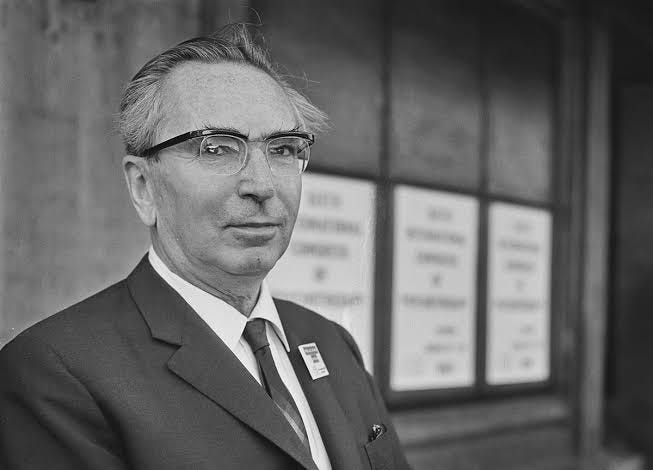As you age, or feel anxieties of any kind, you may begin to wonder if there is an answer to that age-old question you’ve often heard raised - what is the meaning of life? The question usually implies there is a logical answer to explain the problems, difficulties, and uncertainties of everyday life, but no logical answer seems to surface. When I was a teenager, I thought that the answer might be about emotional satisfactions, instead of a logical answer of any kind, but my emotional desires seemed mostly short-term and not very long-lasting—such as food, sex, and cigarettes, I’m sorry to admit. Later, I thought the answer might be more about what I needed instead of what I wanted, but that didn’t seem right either because it wouldn’t be the same answer for everybody; and shouldn’t the answer be the same for all of mankind? Shouldn’t it be like a Bible quote? Last year, when I reached the age of 90, I still didn’t have an answer, but now I was curious what other people thought the answer was. So, I decided to find out what I could that made sense. That’s what this post is reporting on. What I found most people seem to think the meaning of life is about. I hope you find it interesting and useful. I’m curious if you agree with them.
Viktor Frankl’s Answer
Viktor Frankl was a highly respected Austrian psychiatrist and psychotherapist who developed the psychological approach known as logotherapy, widely recognized as the “third school” of Viennese psychotherapy, after the “first school” of Sigmund Freud and the “second school of Alfred Adler. Frankl's concept is based on the premise that the primary motivational force of an individual is to find meaning in life, which has meaning under all circumstances, even the most miserable ones. In the video below, Viktor Frankl explains his WWII Nazi concentration camp experience. He happened to be Jewish in Germany at the wrong time:
Frankl formulated the basis of his existential approach to psychological practice before World War II. However, his experiences in the concentration camps confirmed his view that through a search for meaning and purpose in life, individuals can endure hardship and suffering. Frankl claims that one finds meaning in life through three ways. Through work, especially when that work is both creative in nature and aligned with a purpose greater than ourselves. Through love, which often manifests itself in the service of others. And through suffering, which is fundamental to the human experience. As mentioned above, Frankl sees our ability to respond and to be responsible to life as a major factor in finding meaning and therefore, fulfillment in life. In fact, he viewed responsibility to be the “essence of existence.”
Frankl, in my opinion, adds a critical new dimension to the answer; the answer is not a fact or simple statement, but a process the human must undertake to understand the meaning of his or her life - the process or act of searching for meaning. Interestingly, I find that most people in the world, as far as the survey results I found indicate, would agree with him, even though few people could be as articulate or analytical as Viktor Frankl.
Pew Research’s Answers
Pew Research Center, one of my most trusted sources of consumer research, added another dimension that I think is vital to understanding what is meant by the word “meaning”; i.e., focus, one of the few types of mind behavior we seem to have some control over. What do people focus upon when they try to define the meaning of life—at least to them? Here’s what Pew Research found out:
In 2017, Pew conducted studies in 17 countries, all considered advanced economies, to ask people what in life they considered had the most value to them. They used open-ended questions (no fixed answer options, allowing respondents to focus on any subject they found most appropriate) and interviewed nearly 19,000 adults about their beliefs on the meaning of life. Overall, “family” was the preeminent answer for most cultures but “work”, “material well-being” and “health” also played a key role. The Median percent was used to identify the most typical - right in the middle - response.
The subjects were very similar across all 17 countries, but the order of importance showed some variation by country. My guess would be this is due to slight differences in cultural values.
This indicates to me that people across the world are more alike than they are different - a confirmation of the commonality of mankind. One notable difference, however, was the much higher reference to “religion” by Americans. Why are we Americans so much more likely to think of religion when we think about the meaning of life?
In most respects, men and women are quite similar with regard to what gives them meaning. But women are somewhat more likely to mention family as a source of satisfaction in their lives than are men in most places surveyed. Women are also somewhat more likely to emphasize their health than are men.
People with higher levels of education and higher incomes tend to be more likely to mention their family and career as things that give them meaning than are people with lower levels of education or lower incomes, respectively. Mentions of service and civic engagement tend to be higher among those with more education. Those with lower incomes are also somewhat more likely to cite challenges in their lives when discussing what gives them meaning than those with higher incomes.
Gallup Poll’s Answers
I also found that Gallup, another reputable research firm, had asked different but related questions in America. In January 2022, a Gallup poll found that 83% of U.S. adults say they are satisfied with their personal life, and 85% of people feel they have a purpose. But only about 65% of them believe they can actually articulate that purpose, which I thought was really interesting. It’s like hearing someone say, “Yes, my life has an important purpose, I’m just not sure what it is.” That sounds kind of weird to me.
Dan’s Net Take-Away
It seems to me, based on the above findings, that the illusive meaning of life is not a simple conclusion that can be typed on a piece of paper, but, rather, a feeling that can be called a positive human experience. It often focuses on, or includes thoughts about family, material well-being, health, and other less often mentioned subjects, but it is not just one simple thing. In short, it is a very personal definition. I recommend you now sit down in a quiet room, close your eyes, and ask yourself, “What do I find most meaningful in my life?” It’s worth knowing and remembering. It might even change the way you treat yourself and the people around you.








Dan,
When I was in the early stages of my insurance profession I met a man, Dr Ronald Meredith, that was a world traveler and a very unique minister of Christian faith. I was fortunate to spend nearly ten years traveling with him throughout the US going to see his many past believers of his teachings. We traveled in an aerostream trailer pulled by a pickup with a large generator in the bed. On our way between meetings he would share with me his innermost feelings about man's search for meaning
as to their existence. It was very interesting to listen to his feelings about the subject. He would speak of going to India to meet with Gandhi and to Rome and other places throughout the world as we know it but the most specific response he would share is the purpose of life is to search for a meaning which you will never achieve but you will never quit trying to answer. He was on the front page of the the Saturday Evening Post back when it was a major publication and some of those folks we visited were Lum of Lum and Abner, Mrs Olive Ann Beech, Nelson Rockafeller and Bill Lear. The upshod is that the search never ends and we all seek the same answer which never comes.
Tom
Thank you, Dan, for sharing your provoking thoughts on the meaning of life. Here is something to consider, what if the meaning of one's life is not universal but actually specific to an individual and the "What" one does in any given day, creates a ripple effect of impacting circumstances to others. The "What" could be work, play, service, tasks, routines, meditation, prayer, reflection, writing, learning, discovering, really anything and everything we do that makes up the "What" in a given period of time. Since the "What" can vary by individual, then the meaning is derived by how one spends their time. Time becomes the constant to link our lives, to measure our lives, and time becomes more than a unit of measurement. Time becomes the only currency not managed by governments, politicians, economic institutions, religious organizations, since "we" still have the ability to choose how we spend our time regardless of the circumstances or situation of life we find ourselves. So, does the meaning of life come down to how we choose to spend our time?